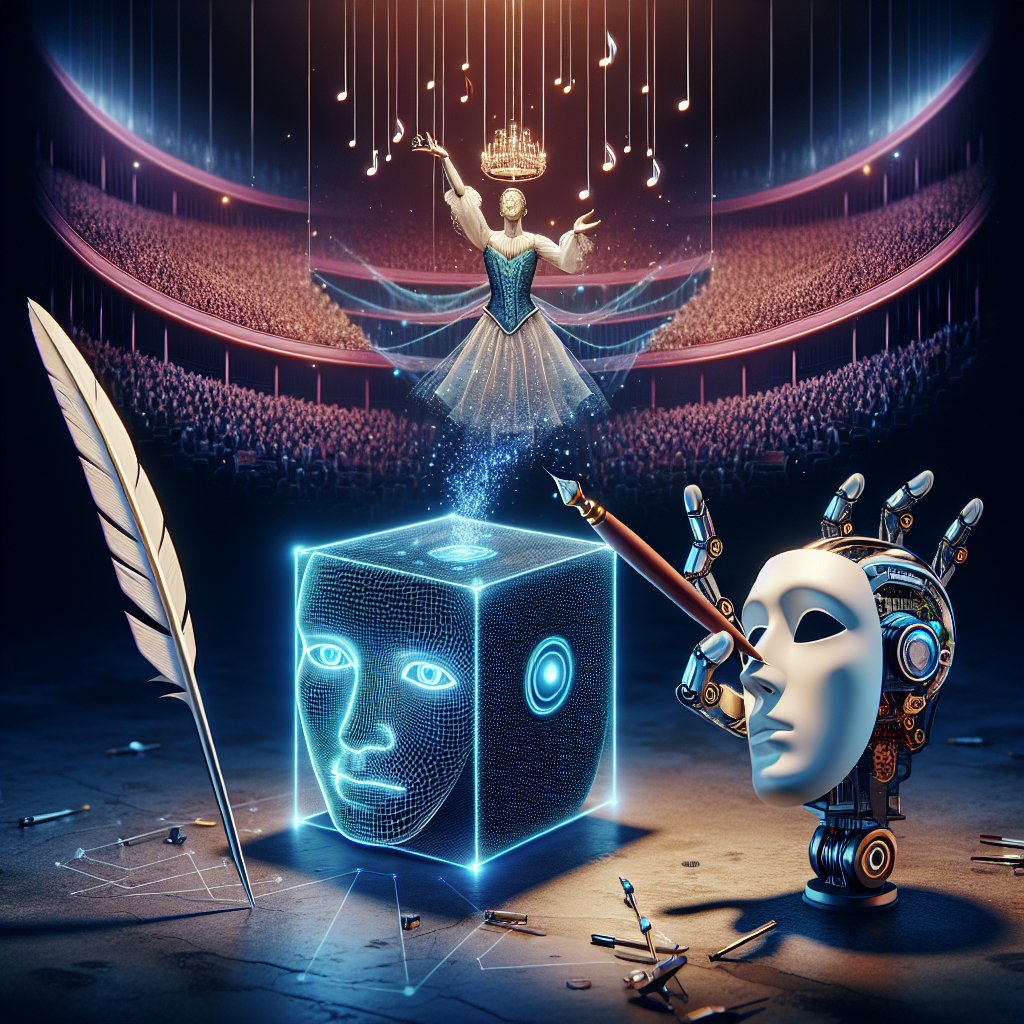The Influence of AI in Opera: From AI-generated Librettos to Virtual Performances
Artificial Intelligence (AI) has been making waves in various industries, transforming the way things are done and pushing the boundaries of what is possible. In the world of opera, AI has also begun to make its mark, offering new possibilities and opportunities for innovation. From AI-generated librettos to virtual performances, the influence of AI in opera is becoming increasingly prominent.
AI-generated Librettos
One of the most intriguing ways in which AI is making an impact in opera is through the generation of librettos. A libretto is the text of an opera, typically consisting of dialogue, lyrics, and stage directions. Traditionally, librettos are written by human composers and lyricists, but AI is now being used to create original librettos.
AI-generated librettos are created using algorithms that analyze large amounts of text data, such as existing opera librettos, poems, and other literary works. These algorithms can then generate new text that mimics the style and structure of traditional opera librettos. This technology allows composers and opera companies to explore new ideas and experiment with unconventional narratives.
One example of AI-generated librettos in action is the opera “Sunrise in Paradise,” commissioned by the Dallas Opera in 2019. The libretto for this opera was created using AI technology developed by the University of Toronto, in collaboration with the Dallas Opera and the Canadian Opera Company. The libretto was generated using a neural network trained on a database of opera librettos, resulting in a unique and innovative text that was used as the basis for the opera’s storyline.
Virtual Performances
Another area where AI is making a significant impact in opera is through virtual performances. With advancements in virtual reality (VR) and augmented reality (AR) technologies, opera companies are now able to create immersive and interactive experiences for audiences. Virtual performances allow viewers to experience opera in a whole new way, from the comfort of their own homes.
One example of virtual performances in opera is the production of “Cosi Fan Tutte” by the Welsh National Opera in 2020. Due to the COVID-19 pandemic, the opera company was forced to cancel its live performances and instead created a virtual production using VR technology. Audiences were able to watch the opera from a 360-degree perspective, giving them the feeling of being onstage with the performers.
Virtual performances also offer new opportunities for opera companies to reach wider audiences and engage with younger, tech-savvy viewers. By embracing AI and virtual technologies, opera companies can attract new fans and create innovative experiences that push the boundaries of traditional opera.
FAQs
Q: How is AI being used in opera?
A: AI is being used in opera in various ways, such as generating librettos, creating virtual performances, and enhancing the overall production process. AI technology allows composers and opera companies to explore new ideas and experiment with unconventional narratives, while virtual performances offer audiences immersive and interactive experiences.
Q: What are the benefits of using AI in opera?
A: The benefits of using AI in opera include the ability to generate new and innovative content, reach wider audiences through virtual performances, and engage with younger viewers who are tech-savvy. AI technology also allows opera companies to streamline the production process and create more efficient and cost-effective productions.
Q: Are traditional opera composers and lyricists being replaced by AI?
A: While AI is being used to generate librettos and create new text, traditional opera composers and lyricists are not being replaced by AI. Instead, AI is being used as a tool to augment and enhance the creative process, offering new possibilities and opportunities for collaboration between humans and machines.
Q: How can I experience AI in opera?
A: To experience AI in opera, you can attend virtual performances that utilize VR and AR technologies, or explore AI-generated librettos that push the boundaries of traditional opera storytelling. Keep an eye out for opera companies that are embracing AI and technology in their productions, and be open to new and innovative experiences in the world of opera.

